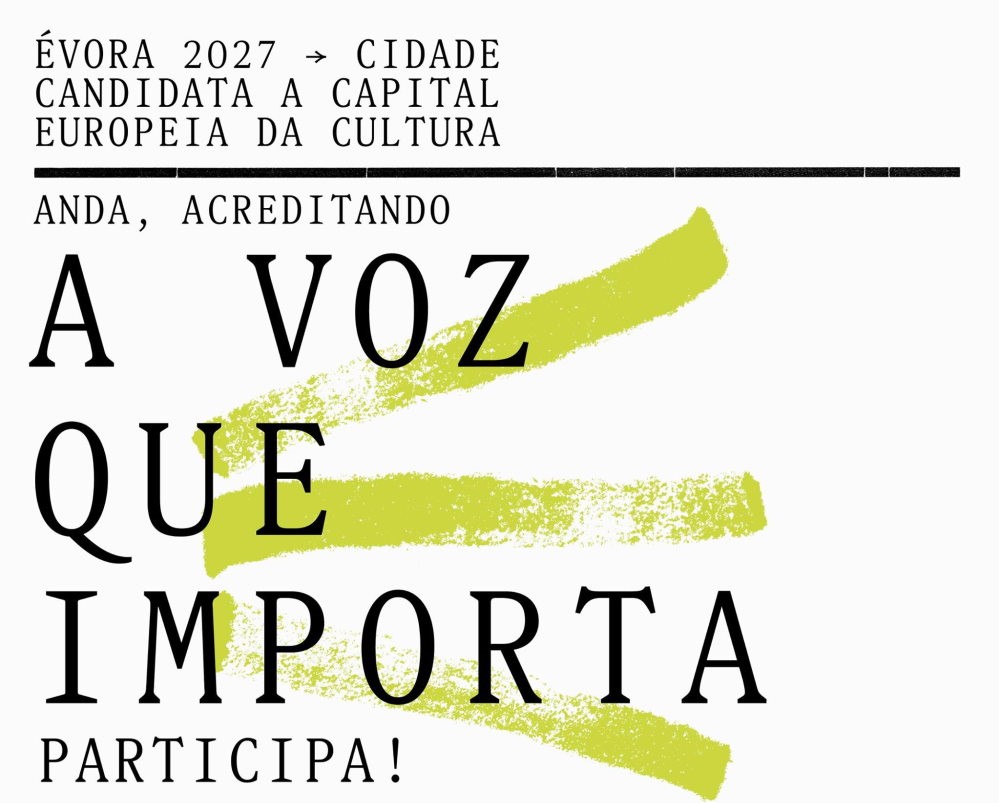Évora 2027 creates discussion groups as part of public participation process
Registrations are open for the Discussion Groups created as part of the public participation process that Évora's candidacy for European Capital of Culture in 2027 has been gradually promoting. The main goal of these groups, addressed this time to young people and people over 65, will be understanding the importance of cultural activities in the lives of Alentejo people, their cultural identity and the future they want for the region.
Attendants will be organised into two age groups: 18 to 30 years old, with sessions taking place on 10 and 11 May, from 5.30 p.m. to 7 p.m.; and over 65 years old, on 17 and 18 May, from 10 a.m. to 11.30 a.m. During these meetings, groups will be asked to share perceptions about the region's past, present and future, through stories, everyday practices and images.
Given the current pandemic context, the Évora 2027 Focus Groups will take place online, using Zoom platform. Capacity is limited. Registration is free and those interested should fill in the following form until 7 May (18 to 30 years old) and 14 May (over 65 years old):
http://bit.ly/evora2027_avozqueimporta
Alongside the discussion groups, a survey focused on the expectations and intentions of the Alentejo population regarding the candidacy of Évora 2027 will be launched soon. The survey is coordinated by André Carmo, assistant professor at the University of Évora and researcher at CICS.NOVA - Interdisciplinary Centre of Social Sciences.
Évora's candidacy for European Capital of Culture in 2027 is held under the responsibility of the Executive Committee "Évora 2027", led by the Municipality of Évora. This Executive Committee also comprises the Alentejo Regional Agency for Touristic Promotion - ARPTA, the Alentejo Regional Development Coordination Commission, the Intermunicipal Community of Central Alentejo, the Regional Directorate of Culture of Alentejo, Eugénio de Almeida Foundation, Turismo do Alentejo - ERT and the University of Évora.
